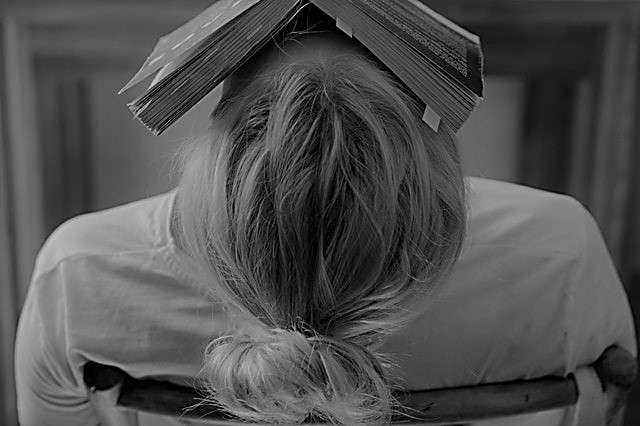What is Anxiety Disorder, Types, and Symptoms?

Anxiety disorder is a commonest psychiatric disorder among people. There is not a single person on this planet, who did not go through anxiety once in their life. Some people are confused with fear and anxiety. Fear is an emotion that arises due to an extrinsic threat that takes an individual to fight or flee from a place. On, the other hand anxiety is related to thinking about the unknown future negatively.
If you are surfing in the sea and you encounter a shark around you, this leads to an extremely fearful condition as you can’t fight and out-swim a shark what If you are sitting at home and your family is planning to go out surfing and you are afraid of sharks in the sea and start thinking “what if a shark attacks anyone of us?” this leads to anxiety, this is just an example to understand fear and anxiety clearly.
Generally, people with anxiety disorders overestimate danger in every situation they fear or avoid. Anxiety disorders can develop in childhood and tend to persist if not treated. Anxiety disorders may lead to depression and it depends on the severity and other disorders.
Now, we think this is it? Or it includes something else, so, the next question comes up
“What are the types of anxiety?”
There are several anxiety types and they are as follows:
- Separation Anxiety Disorder
- Selective Mutism
- Specific Phobia
- Social Anxiety Disorder (Social Phobia)
- Panic Disorders with Panic Attack Specifier
- Agoraphobia
- Generalized Anxiety Disorder
- Substance/Medication-Included Anxiety Disorder
- Anxiety Disorder Due To another Medical Condition
- Obsessive-Compulsive Disorder
- PTSD
Our brain is wired in such a way that when it gets an answer to a question, it’s curious about the next one instantly. So, the next question pops up that
“What are the symptoms of Anxiety?”
Symptoms are generally in two categories first Physical and the second is Psychological symptoms. Let’s see the symptoms:
- Physical Symptoms:
- Motoric Symptoms: Tremors, Restlessness, Muscle twitches, Fearful facial expression.
- Autonomic and Visceral Symptoms: Palpitations, Tachycardia, Sweating, Flushes, Dyspnoea, Hyperventilation, Constriction in the chest, Dry mouth, Frequency, and hesitancy of micturition, Dizziness, Diarrhoea, Mydriasis.
- Psychological Symptoms:
- Cognitive Symptoms: Poor concentration, Distractibility, Hyperarousal, Vigilance or scanning, Negative automatic thoughts.
- Perceptual Symptoms: Derealisation, Depersonalization.
- Affective Symptoms: Diffuse, Unpleasant, and vague sense of apprehension, Fearfulness, Inability to relax, Irritability, Feeling of impending doom (when severe)
- Other Symptoms: Insomnia (initial), Increased sensitivity to noise, Exaggerated startle response.
After knowing the physical as well as psychological symptoms, we come up with another by default question that
“What is the treatment of Anxiety?” or “How to Overcome Anxiety?”
The severity of Anxiety disorder decides the line of treatment and it may vary from person to person and only professionals can help you better because they are trained and certified. The line of treatment can be:
- Psychotherapy:
Cognitive behavior therapy has been increasing nowadays to manage Anxiety disorders, particularly panic disorders (with or without agoraphobia). CBT can be used alone or in conjunction with SSRIs. If the anxiety is mild then supportive psychotherapy can be used along with the combination of drug therapy.
- Relaxation Techniques:
Post-pandemic, people are concerned about their physical and mental health. People go to the gym every day and work out themselves. In the same way, a subject is told to do relaxation exercises to promote the ability to handle anxiety-provoking situations every day. It includes Jacobson’s progressive relaxation technique, Yoga, Pranayama, Self-hypnosis, and meditation; these can be performed if the severity ranges from mild to moderate.
- Other Behavior Therapies:
Hyperventilation control and biofeedback are the therapies to help the disorders.
- Drug Treatment:
You can search for it on the web but I suggest you get professional help with it.
Once the treatment is done by professionals only, the next question hits the mind hard that
“Can Anxiety happen again?”
Once you overcome the anxiety that doesn’t mean that you will not encounter it again in your life as life never stops surprising us with different conditions and situations. The thing that matters the most is whether you can handle it or suffer from it the next time you encounter it again.
Anxiety is the result of our inability to handle our thoughts that’s a straightforward statement. Readers may disagree with me but this is the fact; it’s the reality on practical ground. It’s our thoughts that make or break anxiety.
“Where can I get professional help at an affordable price in pandemic times?”
In today’s world, professional help is just a click away and the good news is that it’s affordable. It saves you time and money to travel and pay a huge amount at the clinic. You can purchase a session or sessions from a wide range of helping people with anxiety worldwide, designed by professionals. For more information on it click here.
If you like this article then do not forget to share it with the person who is in need and leave a comment below.
Thank you, and have a splendid day ahead.
References: A Short Textbook of Psychiatry by Niraj Ahuja